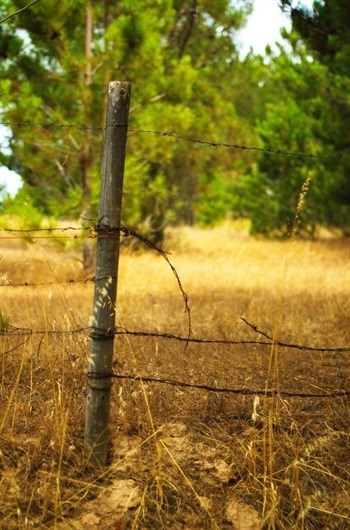
Top stories





Marketing & MediaAds are coming to AI. Does that really have to be such a bad thing?
Ilayaraja Subramanian 23 hours

More news
















He added that it is important to approach policymakers with clear statistics, challenges and solutions to influence policy and see results. According to De Jager, there is a close relation between crime rates and poverty rates, and inequality and instability in a country. “We need to have a long-term and a short-term focus in dealing with this challenge and farmers play a key role in both. In the long term, it is crucial to solving the root of the problem first. We know that the agricultural sector can play a crucial role in combatting poverty, inequality and instability.”
Roleplayers from the agricultural sector were joined by representatives from the South African Police Services. Brigadier Maggie Govender, discussing South Africa’s current approach to combating rural crime said: “We will be empowered, as the police, by the knowledge shared here today and we hope to leave as one body against rural crime.”
An important message shared by several speakers is that crime analysis shows that farm attacks are generally not politically motivated, but simply motivated by criminal intent.
Local speakers were joined by international speakers from the United States of America, Australia and Kenya. “Rural crime is a serious risk to food producers around the world, historically has always been, but increasing in the severity of impact,” said Dr Joseph Donnermeyer, a rural criminology expert from the Ohio State University in the United States. He emphasised the fact that farms are often easy targets for crime and that security and protection of expensive assets are often lacking.
After listening to the international speakers and the rural crime challenges, Willie Clack, senior lecturer at the Unisa School for Criminal Justice and Chairperson of the National Livestock Theft Prevention Forum said that it was interesting to see that the challenges faced are, although there are some differences, very similar. “One aspect in which the South African rural crime challenge differs from that of other countries, is that rural crime incidences are generally extremely violent, a trend that is not as severe in other countries.”
Elaine Barclay of the University of New England, Armidale, New South Wales, Australia shared The Top Ten Challenges for Rural Crime Prevention:
• It is a serious and urgent problem
• It is a very diverse problem
• There are competing rights to land use
• It is under-reported
• It is difficult to police
• It is difficult to prosecute
• It is difficult to prevent
• Informal social control plays a major role
• There are gaps in the current way it is combated
• The public is under-informed about it.
Adding to this, Dr Emmanuel Bunei of Moi University in Kenya shared four reasons why it is challenging to eradicate stock theft in his country. This includes a lack of evidence, police incapacity and inadequate response, dealing with sophisticated criminals and corruption, and lack of political will in dealing with the problem. He suggested several actions that can be taken to short-circuit these challenges and make an impact in combating stock theft in, as an example, Kenya.
This includes taking livestock identification very seriously; removing constraints in the criminal justice system; investing in research and technology that could help in fighting stock theft and other rural crime; putting an effort into tightening security checks at our slaughterhouse; livestock movement and promoting an integrated approach to combatting stock theft.
During his presentation, Clack focused on statistical myths around violent rural crime in South Africa. He emphasised that, although he does not deny the severe problem of farm attacks, stock theft and other rural crimes, he believes that the number of murders on farms and smallholdings in South Africa is lower than the number of murders in the general population. According to Clack, the number is more realistically around 20 per 100,000 people and not as high as most statistics suggest. The generally accepted statistic of murder in the general public is 34 out of every 100,000 people. Clack says it is very complicated to realistically determine statistics as the true occupancy of farms and smallholdings is often not known.
Prof Rudolph Zinn, professor of Policing and Forensic Investigation at the College of Law, School of Criminal Justice at Unisa, focused on the often extremely violent nature of rural crime in South Africa. “Analysis shows that contact crime or contact related crime is disproportionate to other crime types and represents about 40% of all serious crime reported to SAPS annually.”
He emphasised that rural crime displays unique characteristics and therefore requires a unique approach to combat. “Intelligence-led interventions based on these unique characteristics per geographical area and per crime must be the basis of the approach.” He reiterated De Jager’s focus on both short-term and long-term prevention. “In the short term, we must focus on our layers of security. We must be vigilant, get involved in community initiatives, make sure everything is done in accordance law and prevent frustrated vigilante reactions. In the long term, we must address the root causes of crime and get involved in outreach programmes that will help change attitudes and values.” – Marike Brits, AgriOrbit

AgriOrbit is a product of Centurion-based agricultural magazine publisher Plaas Media. Plaas Media is an independent agricultural media house. It is the only South African agricultural media house to offer a true 360-degree media offering to role-players in agriculture. Its entire portfolio is based on sound content of a scientific and semi-scientific nature.
Go to: http://agriorbit.com/